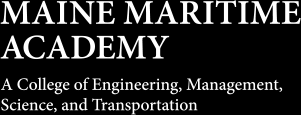The Write Practice
How composition skills are honed and why they count.
Pen and paper. Of all of the tools in the Lyman-Morse boatyard in Thomaston, Maine, the job Andrew King faced during his summer co-op with the custom boat builder required the simplest on the shelf.
“I was assigned to write a project management training guide and service yard manual,” says King, an International Business and Logistics (IBL) major, “and, aside from some feedback from my boss, I managed most of it myself.”
The project was successful and became part of King’s IBL capstone project and presentation “that benefited tremendously from my improved writing skills developed through composition classes and support offered at MMA.”
While MMA graduates are renowned for engineering and technical expertise, the ability to write and communicate with “concision, clarity, and consistency is fundamental to every student’s ultimate success,” says Dean of Faculty Susan Loomis. “If you write well, it indicates you’re able to think well, a necessity in today’s workplace.”
More than two-thirds of salaried jobs require a substantial amount of written communication, according to Grammarly, and major companies spend an estimated $3 billion annually training employees to improve their writing abilities.
Writing proficiency is promoted across the curriculum at MMA, beginning with freshman composition required of all students, followed by Humanities I and II and culminating in major-specific capstone courses and projects.
“You can make anything by writing.”
-C.S. Lewis
This is one reason the Faculty Senate adopted Communications Across the Curriculum, an international pedagogy that requires the entire faculty to integrate practice in writing across the curriculm, starting with first-year students and continuing through their final semester.
Still, MMA’s commitment to writing is not limited to the classroom. At the Center for Student Success at the Buoy House, the Writing Center is staffed with trained writing consultants who work one-on-one with students to improve their writing in general and on discrete assignments ranging from lab reports and research papers to portfolio projects and research proposals — in other words, any writing project.
Also, the Nutting Memorial Library staff offers a variety of writing-support resources and instruction.
For King, other IBL students, and students in the Marine Transportation Department, a course in management communications is required. For engineering students, the emphasis is on technical communications. Ocean Studies students face increasingly challenging science writing assignments as they move toward their capstone projects.
No matter how much technical and leadership prowess Andrew King hopes to possess when he graduates from MMA in the coming year, he says he now realizes, “It doesn’t matter what profession you are in, writing is the key. You’re always going to write, no matter what you do. I’m glad I challenged myself to become a better writer. I think it will pay dividends for the time invested.”█
Photo: Billy R. Sims




Post Comment
Every middle school and high school student needs to hear what you have to say! You truly understand the value of the written word!
Beautifully written!
Comments are moderated and will be reviewed prior to posting online. Please be aware that when you submit a comment, you agree to the following rules:
Maine Maritime Academy reserves the right to delete any comment that does not comply with these guidelines and is not responsible or liable in any way for comments posted by its users. If you have a message for the editor, please email mariner@mma.edu.
Campus Currents
View All >Read More
Read More
Read More